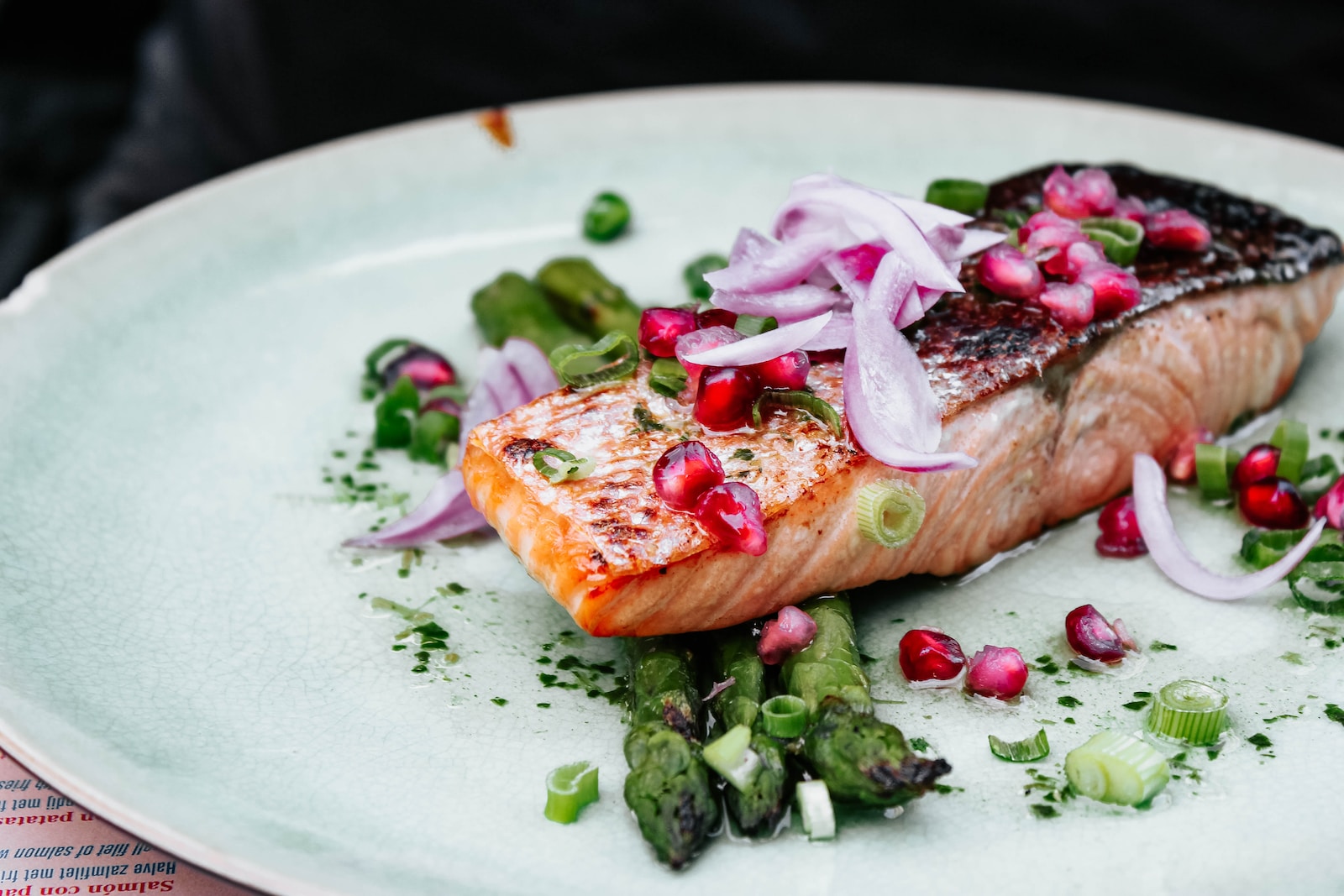Salmon, a cold-water fish known for its distinctive flavor, offers an abundance of health benefits that make it a smart addition to any diet. Here’s a closer look at what makes salmon stand out:
Omega-3 Fatty Acids: The Heart’s Best Friend
One of the most prominent health benefits of salmon lies in its omega-3 fatty acid content, specifically EPA and DHA. These fatty acids are known for their heart-protective properties, reducing the risk of heart disease by lowering blood pressure, triglycerides, and inflammation.
Brain Food: Boosting Cognitive Function with DHA
DHA, a type of omega-3 fatty acid found abundantly in salmon, plays a pivotal role in brain health. It supports cognitive function, enhances memory, and may even reduce the risk of cognitive decline as we age.
Protein Powerhouse: Supporting Muscle Health
Salmon is an excellent source of high-quality protein, containing all the essential amino acids your body needs for muscle growth, repair, and overall health.
Vitamins and Minerals: A Comprehensive Nutrient Boost
Salmon is brimming with essential vitamins and minerals, including B vitamins, selenium, and potassium. These nutrients contribute to energy production, antioxidant defense, and maintaining healthy bodily functions.
Bone Health: Salmon’s Role in Supporting Strong Bones
Vitamin D, which is abundant in salmon, plays a critical role in calcium absorption and bone health. Ensuring adequate vitamin D levels is essential for maintaining strong bones and reducing the risk of fractures.
Inflammation Reduction: Omega-3s and Their Anti-Inflammatory Effects
The omega-3 fatty acids in salmon possess potent anti-inflammatory properties that can help alleviate symptoms of chronic inflammatory conditions, such as rheumatoid arthritis and inflammatory bowel disease.
Eye Health: DHA and Vision Protection
DHA is a major structural component of the retina, making it essential for maintaining good eyesight. Consuming salmon regularly may help protect against age-related macular degeneration and maintain optimal vision.
Weight Management: How Salmon Can Help Keep the Pounds at Bay
Salmon’s high protein content and ability to promote satiety make it an effective tool for weight management. Including salmon in your diet can help control appetite and prevent overeating.
Types of Salmon: Wild-Caught vs. Farmed
There are two main types of salmon available: wild-caught and farmed. While both offer nutritional benefits, wild-caught salmon is often favored due to its more natural diet and higher omega-3 content.
Incorporating Salmon into Your Diet: Creative and Delicious Ideas
From grilled to baked to poached, there are countless ways to enjoy salmon. Whether you’re a seasoned chef or a kitchen novice, incorporating this versatile fish into your meals can be both nutritious and delicious.
Potential Risks and Considerations
While salmon is undoubtedly a nutritional powerhouse, it’s important to be mindful of potential risks, such as mercury content in certain types of salmon. Consuming a variety of fish and following dietary guidelines can help mitigate these risks.
Conclusion
Incorporating salmon into your diet is a wise choice for promoting overall health. Its omega-3 fatty acids, high-quality protein, and rich nutrient content make it a standout food that offers an array of benefits, from heart and brain health to weight management and more. By enjoying the delectable taste of salmon, you’re not only savoring a culinary delight but also investing in your well-being.
FAQs
Q: How often should I consume salmon to reap its health benefits?
A: Consuming salmon two to three times a week is recommended to enjoy its health benefits without excessive exposure to potential contaminants.
Q: Are there vegetarian sources of omega-3 fatty acids?
A: Yes, flaxseeds, chia seeds, and walnuts are excellent vegetarian sources of ALA (alpha-linolenic acid), a type of omega-3 fatty acid.
Q: Can I consume salmon if I’m pregnant?
A: Yes, salmon can be a beneficial part of a pregnant woman’s diet due to its omega-3 content, which supports fetal brain and eye development.
Q: What cooking methods are best for preserving salmon’s nutrients?
A: Baking, grilling, and steaming are cooking methods that help preserve salmon’s nutrients while maintaining its delicious flavor.
Q: Is it safe to eat raw salmon, such as in sushi?
A: Eating raw salmon, especially in dishes like sushi, is generally safe if it has been properly frozen beforehand to eliminate parasites.

